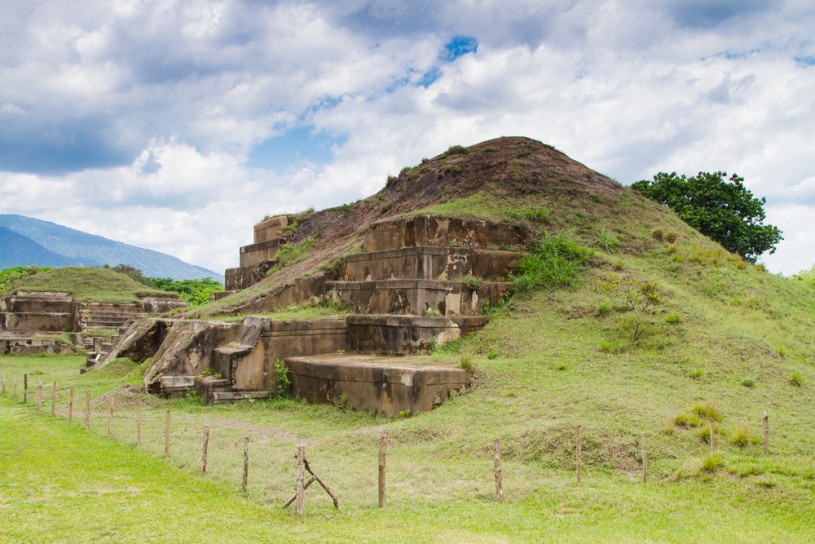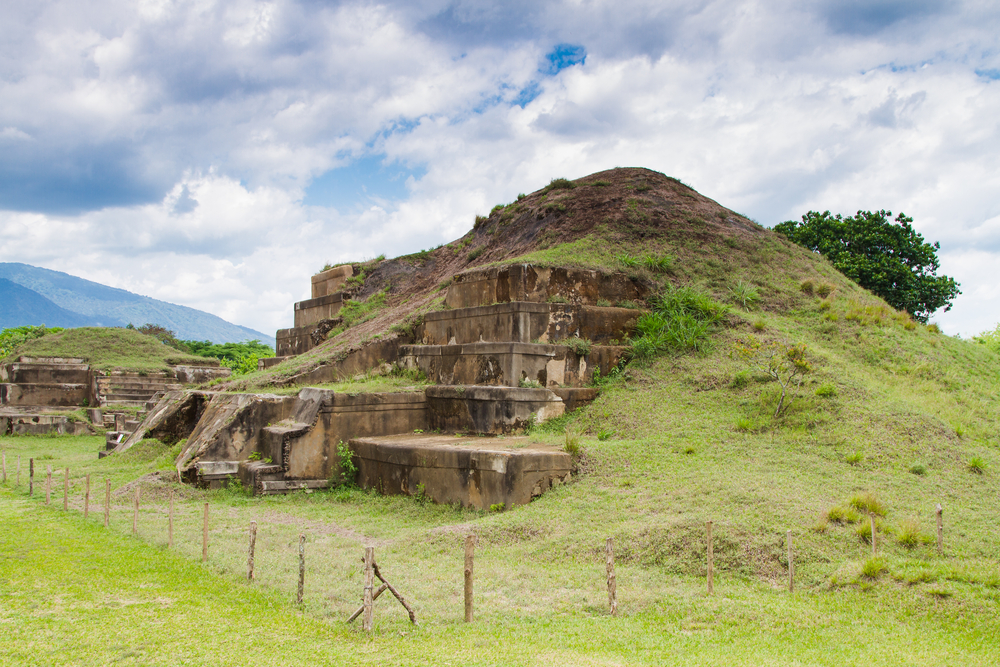
(Image: Shutterstock)
We have heard surprise expressed that two religious leaders from poorer countries, Pope Francis from Argentina and Cardinal Turskon from Ghana, have emerged as leading voices for action on the environment with their compelling June 2015 encyclical. The surprise comes from the assumption that poorer countries invariably prioritize economic growth and financial revenues—not the environment—and that only when beyond a certain threshold of per capita income do they shift priorities and take action in favor of the environment. As many readers know, this theory that only richer people in richer countries care about the environment is what some call the Environmental Kuznets Curve or the post-materialist hypothesis.
Our research on decisive action to protect the environment in El Salvador and Costa Rica suggests that this stereotype is outdated and the theory wrong. We zeroed in on El Salvador and Costa Rica because both have halted potentially lucrative metallic mining within the last decade due to its negative environmental impact.
In our new article in the journal World Development, we ask “why did these two governments do this?” Our goal now is to share our answers to that question. We posit three conditions under which governments of poorer countries take action to protect the environment, at times sacrificing large-scale financial gain.
(1) The first condition is related to civil society: Poorer people, whose natural resource base is threatened by mining, can move from individual awareness to concern, to become organized, and then to engage with other sectors of civil society in pressuring their government to implement policy changes. This involves a combination of poorer people who have lived in the area long enough to grasp the environmental damage, with other segments of domestic civil society providing additional support and voice. Organizing begins locally in the mining areas but moves to a national level, putting pressure on governments.1
(2) The second condition is related to domestic business elites: In our case studies, we find that segments of the domestic economic elite who have interests based in protecting natural resources are more powerful than the elite and corporate interests that benefit from exploiting minerals. The power of global corporations is not strong enough, or is not connected enough to local economic elites, to change this calculus. Thus, foreign mining firms that want to mine often move from the national level (where they have not been successful) into the global arena, where they sue the governments under investment agreements and investor-state dispute structures.2
(3) The third condition is related to governments: We find that individuals and agencies within democratic governments who are willing and able not only to respond to civil society, but also to understand the ecological realities of natural-resource exploitation, can play a central role. We also find that far-sighted political leaders or bureaucrats, regardless of their party’s politics, who come into office with either an understanding of environmental issues or a willingness to listen to non-governmental experts, can also become catalysts.
In both Salvadoran and Costa Rican mining policy, all three of these conditions came into play and reinforced one another, leading to decisive government action to halt environmentally-destructive mining. In both countries, there was strong local citizen opposition to mining that combined with other civil society actors to form powerful national movements against mining. In El Salvador, rural farmers and communities provided the initial spark, with the church playing a significant integral role.3 In Costa Rica, rural communities were crucial, but urban environmentalists played an important role, as did academics and the media.
In terms of the business sector: in both countries, local and national business interests collectively had more to lose than gain from industrial mining and its ensuing environmental damage. In El Salvador, the farming and tourism sectors need water that mining seemed likely to further contaminate. The economic elites connected to these sectors were more numerous and powerful than local businesses that would benefit from foreign mining companies gaining mining concessions. In Costa Rica, the many sectors that benefit from eco-tourism (and agriculture) are similarly more numerous and powerful than the relatively small mining sector.
As for government, in both countries, at different times, there were key individuals and sometimes whole agencies within government who spoke out or took action against mining.
Comparing the influence of the three conditions: The first two conditions, strong civil society and weak pro-mining domestic business elites, seem particularly important since the recent histories of both El Salvador and Costa Rica reveal much more variation within key government agencies during the period in question. In El Salvador, even a relatively corrupt and pro-foreign business administration such as Antonio Saca’s (2004-2009) could take action against gold mining given the country’s strong civil society and weak pro-mining national business elites in the context of the country’s extreme environmental degradation. In this case, individuals in the Saca government did indeed make a difference. And, in Costa Rica, there is the two-year period of 2008-2010 when, even with strong civil society, weak pro-mining national business elites, and a democratic government, the administration of Oscar Arias (who one might have assumed to be more pro-environment than the Saca administration) gave permission for Canadian firm Infinito Gold to mine at a very controversial site. Yet, even in this instance, a strong civil society and an independent Supreme Court eventually overturned Arias’s pro-mining policies and stopped Infinito’s mining.
The key point is that these two governments halted environmentally-destructive gold mining even though both are relatively poor, small countries which would, according to conventional theory, choose short-term economic gains over longer-term environmental concerns.
Based on this work, we were not at all surprised that it was two religious leaders from poorer countries who have emerged as among the most vocal voices for action on environment (including climate).
—
1 This first condition builds on our 1994 research (also published in World Development) regarding the three conditions under which poorer people take decisive pro-environment stances and actions.
2 For more on investor-state disputes, see Broad, R. (2015 forthcoming), “Corporate Bias in the World Bank Group’s International Centre for Settlement of Investment Disputes: A Case Study of a Global Mining Corporation Suing El Salvador,” University of Pennsylvania Journal of International Law 36. Pre-publication version available here.
3 For more on this, see Broad and Cavanagh, “El Salvador Gold: Toward a Mining Ban,” in Princen, Martin and Manno, Ending the Fossible Fuel Era (MIT Press, 2015), pp. 167-192.
